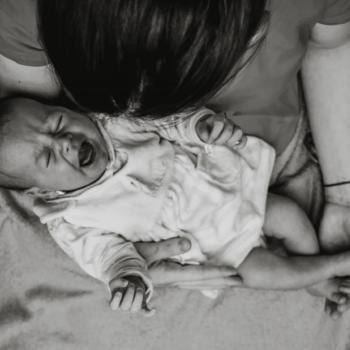Elizabeth Scalia, with an eye on what just happened in California, offers a perfect answer:
Our Communion is much more than a mere family meal. it is a face-to-face, one-on-one, intimate encounter with Christ. This is nothing to engage in lightly. Paul warned us in 1 Corinthians 11:23-29 against unworthy reception of the Eucharist and canon 908 is just the expression of this apostolic instruction in canon law. If the Church seems to “stand between” a person and Christ it is only because we each of us have a responsibility to stand between ourselves and the reception of Christ in the Holy Sacrament, if we are not rightly disposed. That means not only that we be free of the stain of grave sin, but that we also bring ourselves to Him in humility.
And part of that humility is to consider one’s beliefs in the light of all of Scripture—including Paul’s admonishments—and the teaching of the Church, including her canon law. If one does not believe what Scripture and the Church say about the Mass, one ought not allow a feel-good pretense to overrule one’s manners.
The Holy Eucharist is the all-or-nothing Source and Summit of our faith. It either is what Jesus said it is, or it is nothing at all. If it is the Flesh and Blood of Christ, truly Present, then common sense says the Holy Eucharist deserves our highest honor, our highest respect, our most complete reverence, and all of the excludes those who don’t believe this from participating.











